‘Is that a shelter dog?’ It’s time to redefine how we answer that question
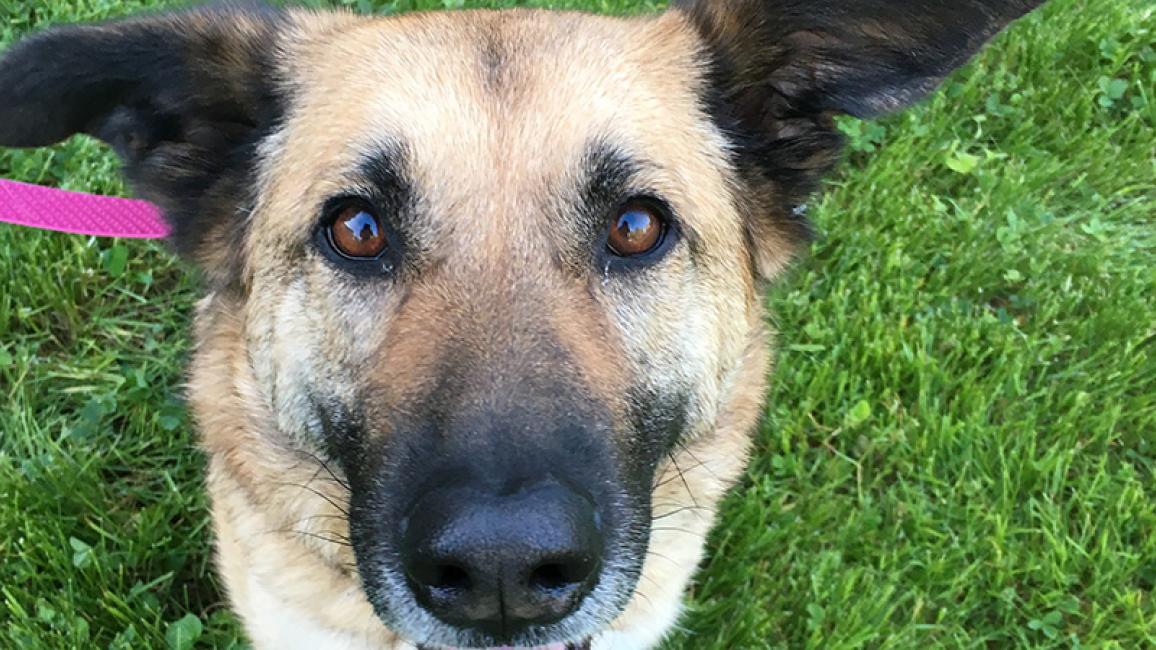
Three years ago on a sunny summer day, my husband, Elias, and I brought home a gangly nine-month-old shepherd mix from the Williamson County Regional Animal Shelter outside of Austin, Texas. I’d mentioned to some friends that we were looking for a buddy for our six-year-old schnauzer mix, Stella. Never underestimate how many hours your pals spend looking at pictures of dogs online.
Just a few days later, a friend shared a post about Polly (then named Sasha) on Facebook. She looked like a cartoon character with her Yoda ears, big chocolate-colored eyes and goofy smile. We loved her instantly.
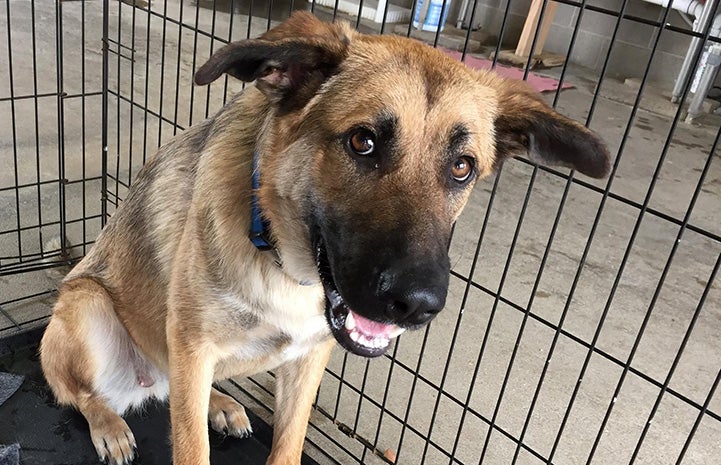
It took us a few days to work through the logistics of bringing Polly home, juggling our schedules with the shelter’s calendar for her spay surgery. But after a successful meet-and-greet with Stella, a bit of paperwork and a green light from the clinic, we picked her up. All told, she spent about five days in the shelter system, from intake to the back seat of our Forester.
It wasn’t long before we realized that Polly was in need of some basic training. Her exuberance and love for life were endearing but it was like having Tigger (the character popularized by writer A.A. Milne) bounding through our house. So, we took her to classes, where she learned to exhibit some self-control and got her basic skills down.
Along the way, we invented our own extra-credit course called “bar dog training.” After class, with pockets full of dog treats, we’d head to a nearby bar patio and toss a mat by our table. We practiced “down” and “stay” and “place” with Polly, handing over a steady stream of string cheese bits while we drank beer and watched football. It quickly became a favorite family activity.
Well-mannered dog: Training, play, socialization
About a year ago, we decided to leave Texas to move back east and be closer to our families. And let’s face it, big moves are hard for both pets and people. Polly’s first summer as an East Coast dog was filled with adventures with family and friends (friends to us, but strangers to her).
That’s when I started to notice a trend. People would ask “Is she a shelter dog?” and “Did you rescue her?” The question was often delivered in well-meaning, sympathetic tones right after she did something like bark at a bus, hesitantly enter a room full of new people or back away from a person throwing out odd vibes (I think it’s worth mentioning that, other than barking at buses, I also exhibit these behaviors).
I was surprised and a little confused, but the real question I was being asked was always clear. It was there, just beneath the surface: “Is your dog doing something weird because she came from a shelter?”
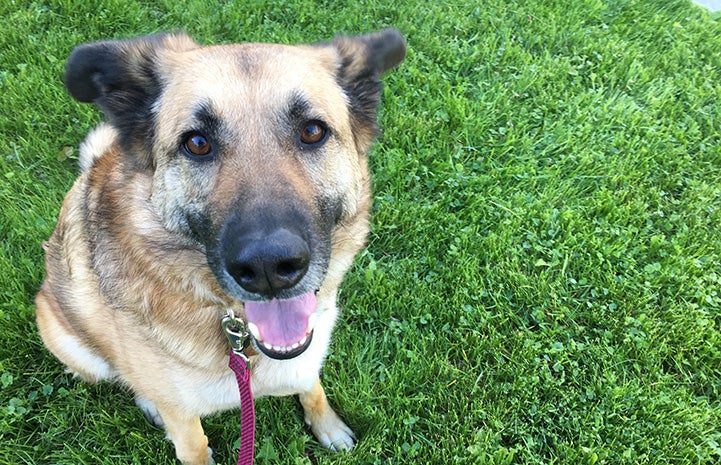
A life defined in just five days?
When asked these questions, I stumbled over my response because I wasn’t really sure how to answer. I am always proud to say that I adopted my dogs and I’m thankful for the groups who cared for both of them before they came home with me. But these questions felt different. I didn’t have those feelings of pride. Instead, I felt like I was being asked to say that there’s something wrong with Polly — and that maybe that something was the shelter’s fault.
It didn’t make sense to me. My four-year-old dog had spent only five days of her life in a shelter. She was well cared for while there; she was given food and water, daily walks, toys and medical care. Five days. I spent more time than that couch-surfing in the 90s. Imagine being defined based on any given five days of your life.
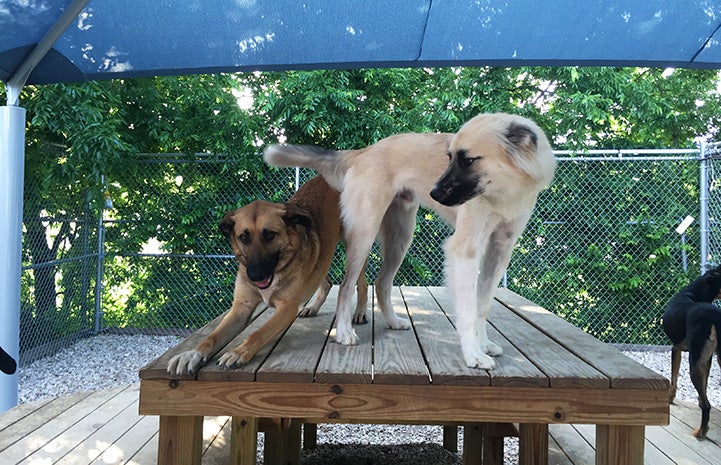
Why do we look to shelters for answers about a pet’s behavior? I asked Heather Owen, executive director of One Tail at a Time, an all-breed dog rescue group in Chicago, about the idea that some people think of dogs differently because they’ve been in a shelter. “People are assuming the worst,” she says of the assumptions we tend to make about the source of a particular dog behavior.
For instance, if a dog shies away from a raised hand or a broom, we surmise that someone has done something cruel to make him act this way. “Some dogs are just shy or anxious,” Heather explains. “Just like people, they have different triggers.”
Those assumptions seem rooted in a fear of the unknown. We want to know what our dog’s life was like before. What’s his story? Was he mistreated? It’s so easy for our minds to go to the worst scenario. But realistically, it’s often not the case. Heather says, “Most of (the dogs at One Tail at a Time) are just really easy pets who need a second spot to go to, because the first spot didn’t work out.”
Of course, there are dogs in shelters who weren’t treated well in their past lives. But many dogs who end up in shelters previously lived happily with families, just as they now do in their new homes. I started to wonder if there are two types of adopters as well: those who proudly declare that they rescued their dog as a reflection of their identity and values, and those who are just looking for a best friend and are open to adopting instead of purchasing.
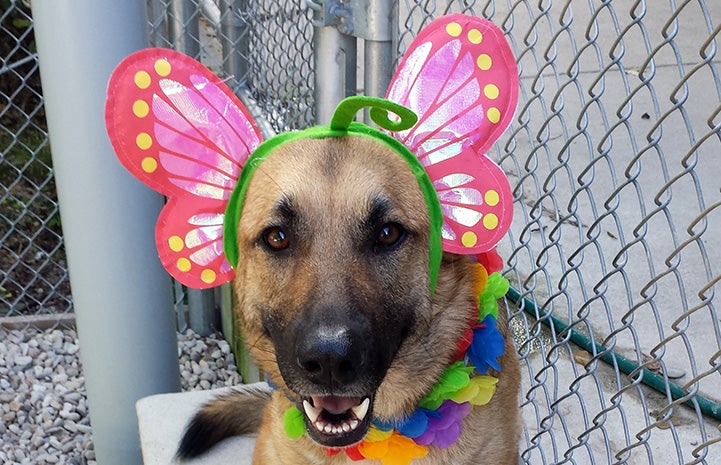
A look at language
I’d wager that the former are a little more vocal about their pets’ origins (yes, I consider myself to be in that group), and that’s good. It’s helpful for us to talk about where our pets came from and how great it is to adopt.
Word of mouth is how many people find out about One Tail at a Time, Heather told me. But could we be scaring off that second group inadvertently by talking about “rescuing” our pets from a shelter? How do I answer the unsettling “Is she a shelter dog?” question in a way that removes that underlying blame? Are we using the right language?
The idea of what it means to “rescue” a dog kept coming up as I mulled over the ways I’ve heard people talk about their pets, and the way I’ve talked about my own. Adopting Polly never felt like a rescue mission to me.
On the day we met her at the shelter, she was lounging on a comfy bed with a blanket and a stuffed toy duck. But “rescue” is a common word that we, as pet adopters, use to describe bringing a pet home from the shelter. What about those folks who find the notion of that kind of mission too daunting?
When I think about rescue missions, I envision a dangerous voyage to a scary place. It’s a far cry from the bright and cheery lobby of MSPCA-Angell’s headquarters in Boston, where cats hang out on tall perches in the sun and volunteers come in and out all day to walk dogs and give them other forms of enrichment.
It’s a trend in shelters all across the country — providing appealing and comfortable places to meet adoptable pets. But Mike Keiley, director of adoption centers and programs for MSPCA-Angell, reminds me that it wasn’t always that way.
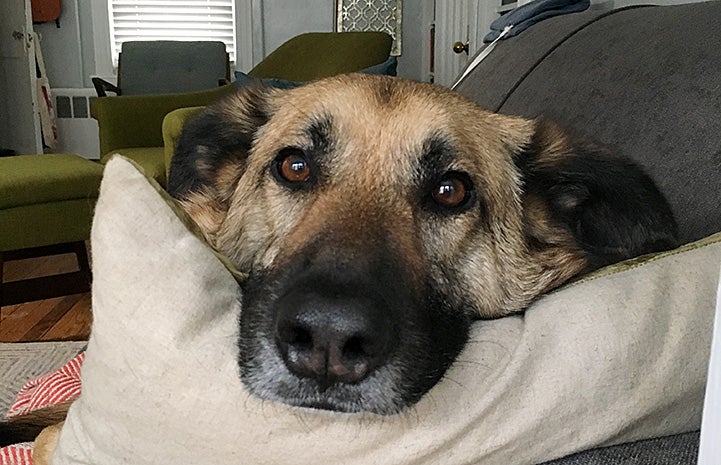
Mike’s tenure in animal welfare began in the 90s, and he’s been building high-impact lifesaving programs in the Boston area ever since. He has seen a significant cultural shift in that time. Many shelters, previously viewed as grim, scary facilities, have evolved and are now welcoming adoption centers. But the public’s perception of shelters hasn’t caught up entirely.
“I think the way that (language is) being used is indeed sometimes negative, like the animals need to be rescued from the bad shelter that was going to put them down, or that we are somehow not looking out for the interests of the animal,” Mike says.
And here’s where Mike’s historical context comes in. He continues: “I wonder if (years ago) we needed to make people feel like they were heroes in order to get them to actually walk through the door of an animal shelter.” Before adopting gained its current image as a socially conscious thing to do, it was a lot harder to motivate people to go into a shelter and adopt.
So, how am I going to answer the question about my “shelter dog” next time? I asked Mike how he talks about his own dog, Franny. “I tend to lean toward describing her as who she is,” he responded. “Her name is Franny, she’s a cockapoo, and we love her. And if an opportunity comes up to say where she came from, we proudly state that we adopted her from the MSPCA.” Perfectly put — and there is no room for confusion.
Now it’s my turn: “This is Polly. We adopted her from a shelter in Texas and we love her.” Yes, I think I’ll give that answer a shot.
This article originally appeared in Best Friends magazine. You can subscribe to the magazine by becoming a Best Friends member.
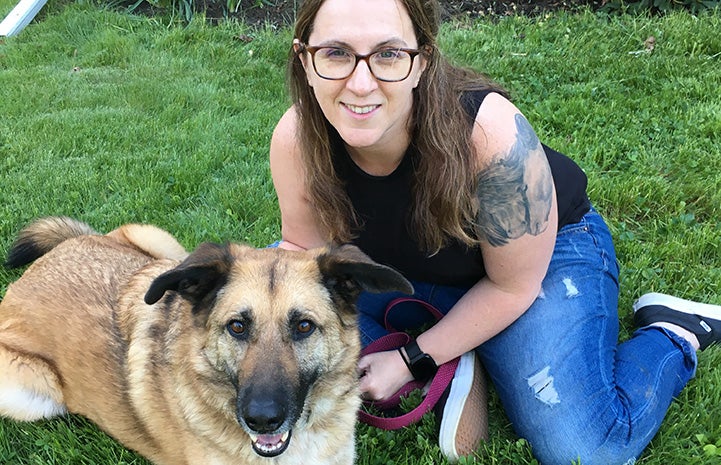
Photos courtesy of Amy Starnes